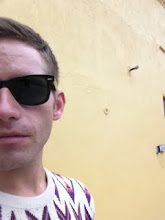 Jane Campion’s latest, Bright Star, explores the love affair between poet John Keats and Fanny Brawne. For all its literary ambition and handsome styling, it’s never more than a coffee table book of a film – very pretty to look at, but totally devoid of substance.
Jane Campion’s latest, Bright Star, explores the love affair between poet John Keats and Fanny Brawne. For all its literary ambition and handsome styling, it’s never more than a coffee table book of a film – very pretty to look at, but totally devoid of substance.When we first meet Brawne (the round, vacant Abbie Cornish), she’s a superficial fashionista who finds literature and poetry a total bore. That’s until she meets Keats (the brooding, whisp-thin Ben Whishaw). He sulks around the grounds, writing verse and wearing his impending demise like the latest fall fashion. Of course she falls in love with him and their mutual infatuation swiftly moves into doomed love affair territory. With echoes of Julianne Moore’s nagging cough in The End of the Affair, Keats begins hacking up blood and though we know how this story will end, Campion chronicles his slow end at a snail’s pace. I suppose that I was meant to feel something, but as I watched Whishaw wither away, I couldn’t help but think how much better Bright Star would have been if he died at the beginning of the film.
It doesn’t help Campion’s case that Cornish, meant to be the film’s heart, is an utterly hollow screen presence. Best known for being the third wheel in a campy love triangle with Cate Blanchett and Clive Owen in the mess that was Elizabeth: The Golden Age, she has the look of a younger Kate Winslet with none of the depth. Whishaw fares slightly better, though as written Keats is more of a lovesick teenage girl’s fantasy of who Keats might have been rather than a fully formed character. Paul Schneider (so good in Lars and the Real Girl and currently on TV in Parks and Recreation) delivers the film’s only real performance as Keats’ pompous fellow poet and confidante.
This is a rare misstep for Campion, who even when she is off (the bizarre Kate Winslet and Harvey Keitel two-hander Holy Smoke!) is at least interesting. While nice to look at, Bright Star lacks the visual whimsy and dazzle of either The Piano or In the Cut, not too mention the dramatic urgency.


No comments:
Post a Comment